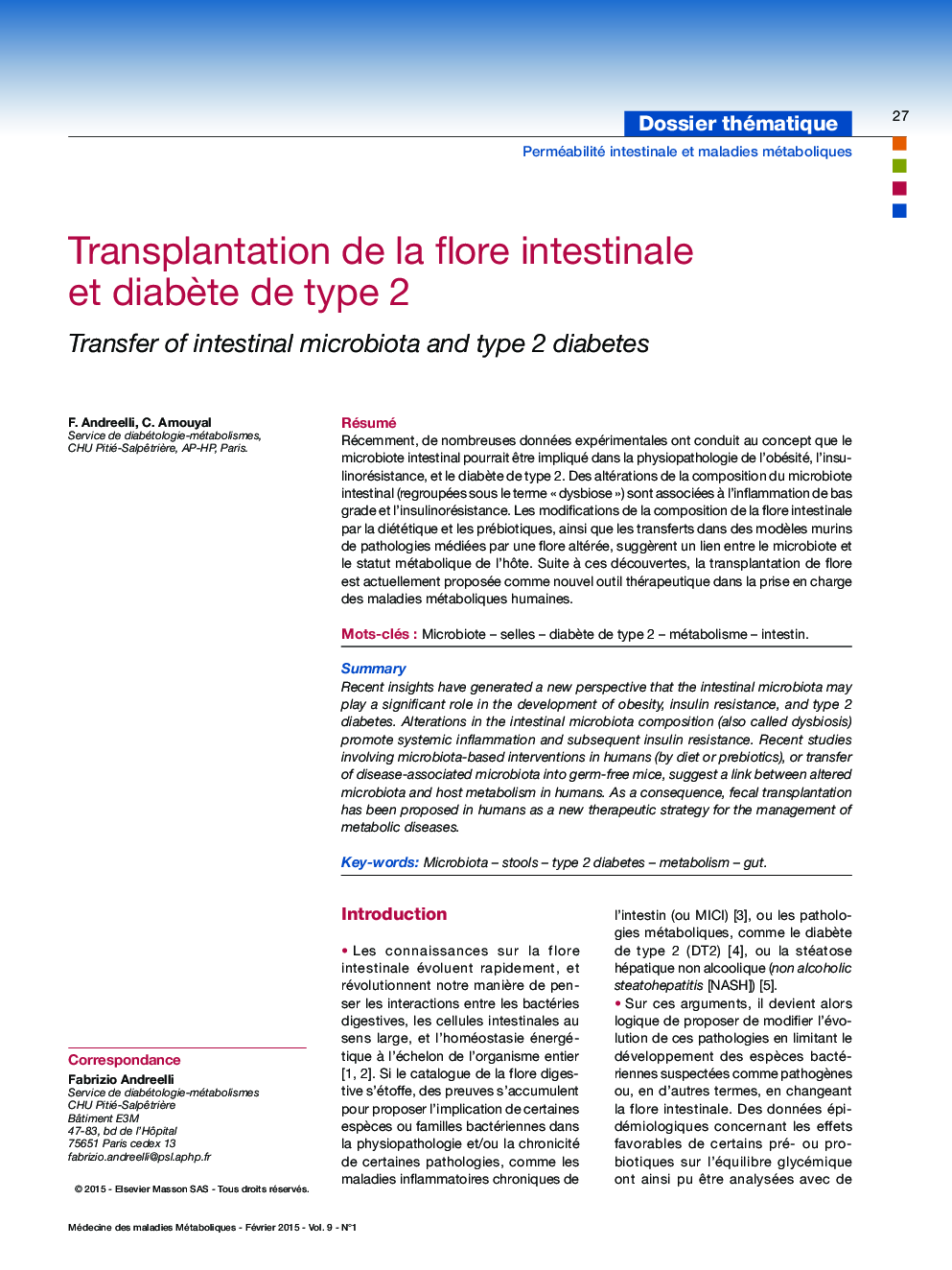| Article ID | Journal | Published Year | Pages | File Type |
|---|---|---|---|---|
| 3274603 | Médecine des Maladies Métaboliques | 2015 | 5 Pages |
Abstract
Recent insights have generated a new perspective that the intestinal microbiota may play a significant role in the development of obesity, insulin resistance, and type 2 diabetes. Alterations in the intestinal microbiota composition (also called dysbiosis) promote systemic inflammation and subsequent insulin resistance. Recent studies involving microbiota-based interventions in humans (by diet or prebiotics), or transfer of disease-associated microbiota into germ-free mice, suggest a link between altered microbiota and host metabolism in humans. As a consequence, fecal transplantation has been proposed in humans as a new therapeutic strategy for the management of metabolic diseases.
Keywords
Related Topics
Health Sciences
Medicine and Dentistry
Endocrinology, Diabetes and Metabolism
Authors
F. Andreelli, C. Amouyal,
